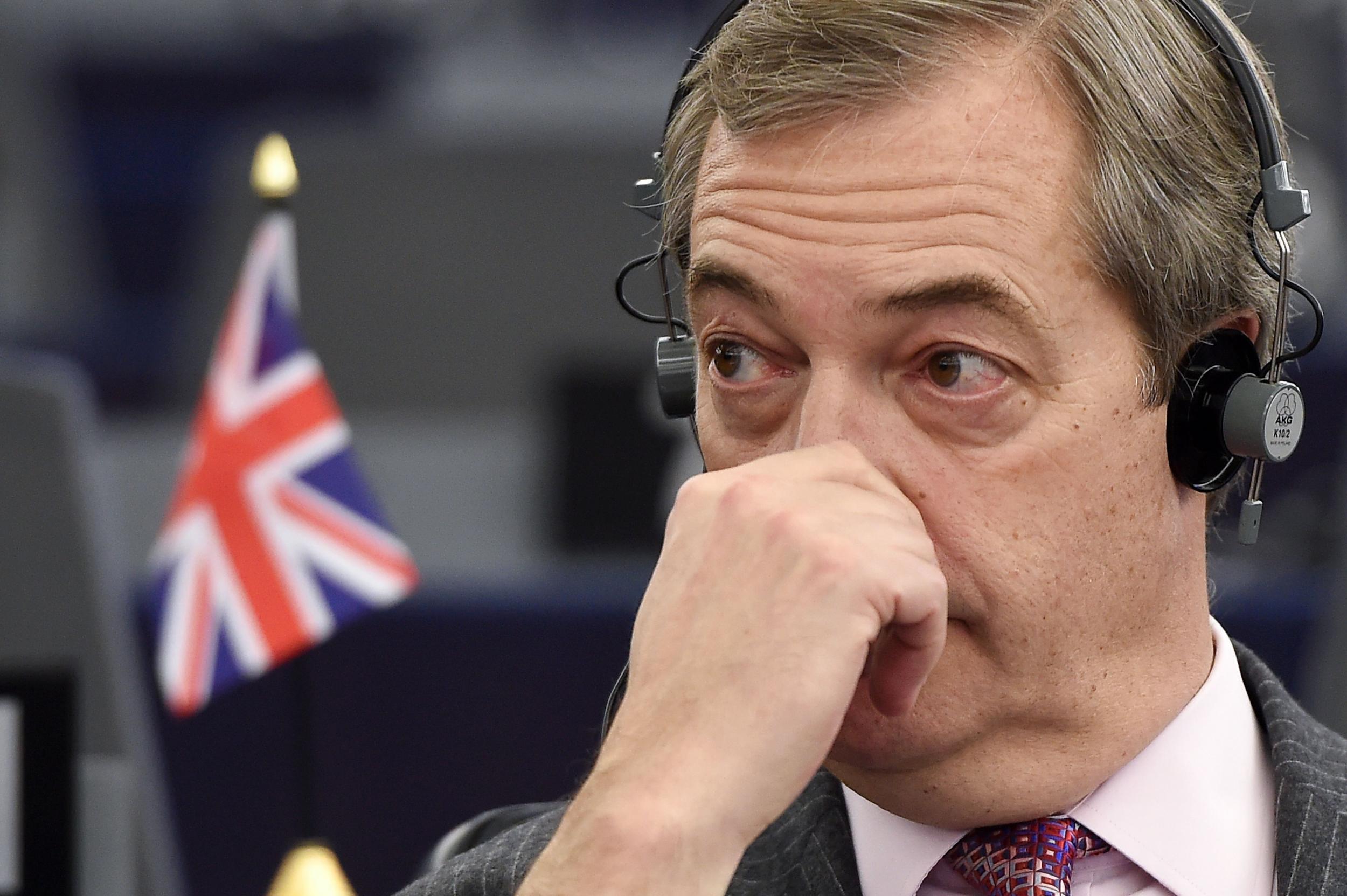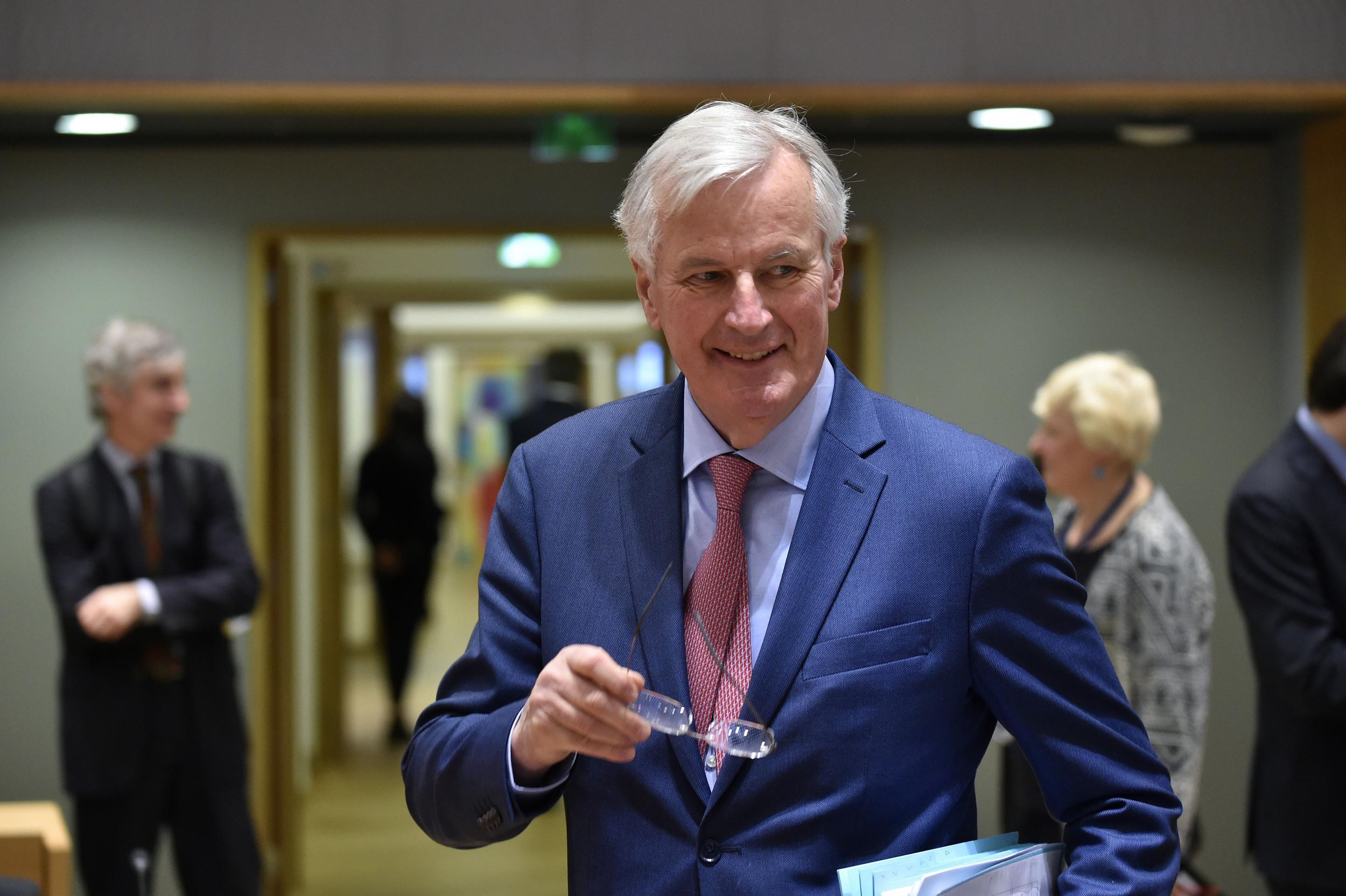Brexit negotiator Michel Barnier privately told Nigel Farage: 'You must understand that your actions have consequences'
The pair met in Brussels earlier this year

The EU’s chief Brexit negotiator used a private meeting with Nigel Farage to urge the former Ukip leader to understand that his actions in campaigning for Brexit have “consequences”, it has emerged.
Michel Barnier met with Mr Farage in Brussels on 8 January to discuss the state of Brexit negotiations as part of his “open door” policy of meeting people interested in the talks.
Though the full contents of the meeting have not been disclosed, Mr Barnier told British MPs at another similar meeting that he had warned Mr Farage that he would have to “live with the consequences” of Brexit.
“It is the UK that is establishing these red lines, which are closing or opening certain doors. It is not us,” Mr Barnier told MPs from the Northern Ireland select committee on their visit, according to an official transcript.
“I was explaining this to Mr Farage and a number of other people responsible for the Brexit campaign the other day, who I am sure some of you are familiar with.
“I said to him, ‘You have to be aware of the consequences of your decisions. It is not up to us to assume these consequences. There is no reason for this. You have taken a decision and you have to live with the consequences’.”

Shortly after the meeting in Brussels arch-Brexiteer Mr Farage announced that he was starting to think a second EU referendum was a good idea, to settle the issue for a generation and “finish the whole thing off”.
Speaking at the meeting with the Northern Ireland MPs Mr Barnier also emphasised that Theresa May’s “red lines” in negotiations were not a necessary consequence of leaving the EU but a choice by her government.

“The United Kingdom will not only be leaving the European Union, in line with the decision of a majority of its citizens in the referendum, but will also be leaving the internal market and the customs union. It is not an obligation. Norway is not a member of the European Union. It did not wish to join, but it is part of the internal market,” he said.

“That model is available and we could even add a customs union to it, such as we have with Turkey, but there are conditions that need to be complied with.”
The UK has yet to state what its preferred trade relationship with the EU will be, but Ms May has said she wants to leave the customs union and single market, to have an independent trade policy, end freedom of movement, and for the UK to have independent regulations.
Talks on the framework which the future relationship will take are due to begin in March, with full negotiations on a free trade agreement starting a year later once the transition period begins.
Join our commenting forum
Join thought-provoking conversations, follow other Independent readers and see their replies
Comments
Bookmark popover
Removed from bookmarks